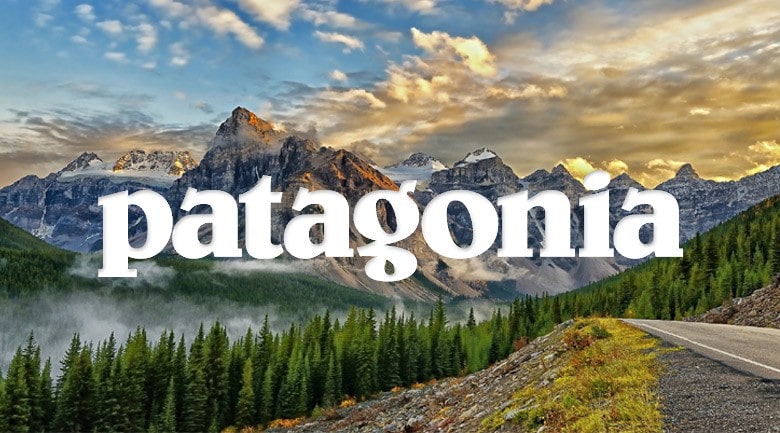
A giant in the world of outdoor clothing, Patagonia is known for producing expensive but high-quality products that adventurers can count on to support them, no matter the conditions. But despite technically being a clothing company, Patagonia’s mission is centered purely on activism and environmental preservation, saying “We’re in business to save our home planet”. But they don’t just talk the talk, they’ve also been walking the walk since their beginning in 1973, and by 2019 they were awarded the United Nations’ Champions of the Earth Entrepreneurial Vision Award, demonstrating their role as a major leading activism company in the world.
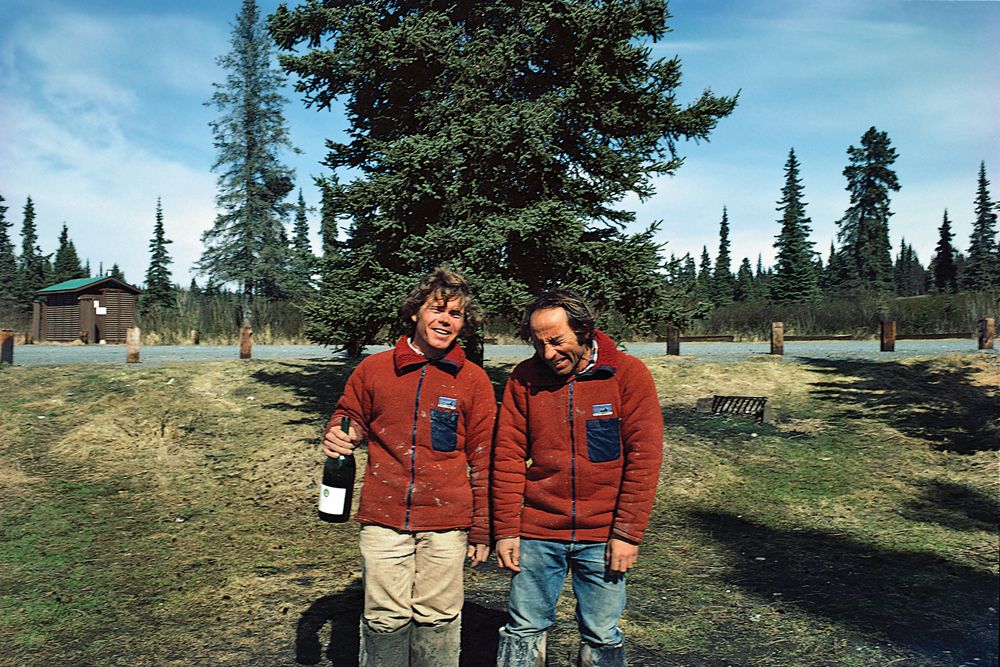
Patagonia’s founder, Yvon Chouinard, started designing and making climbing equipment in 1964 in California and was making business upwards of $400,000 per year by the 1970s; however, after finding out that the product Chouinard and his partner Tom Frost had invented for rock climbing was damaging rock faces, Chouinard pulled out of the company and began pioneering new products to promote “clean climbing” that would not impact the natural rock formations. This was just the beginning and by 1973 Chouinard had founded Patagonia out of the back of a meatpacking factory in California and he was selling clothing specifically designed for outdoor adventures. Since then, Patagonia has expanded to become a billion-dollar company that sells clothing and equipment for a huge variety of sports all over the world.
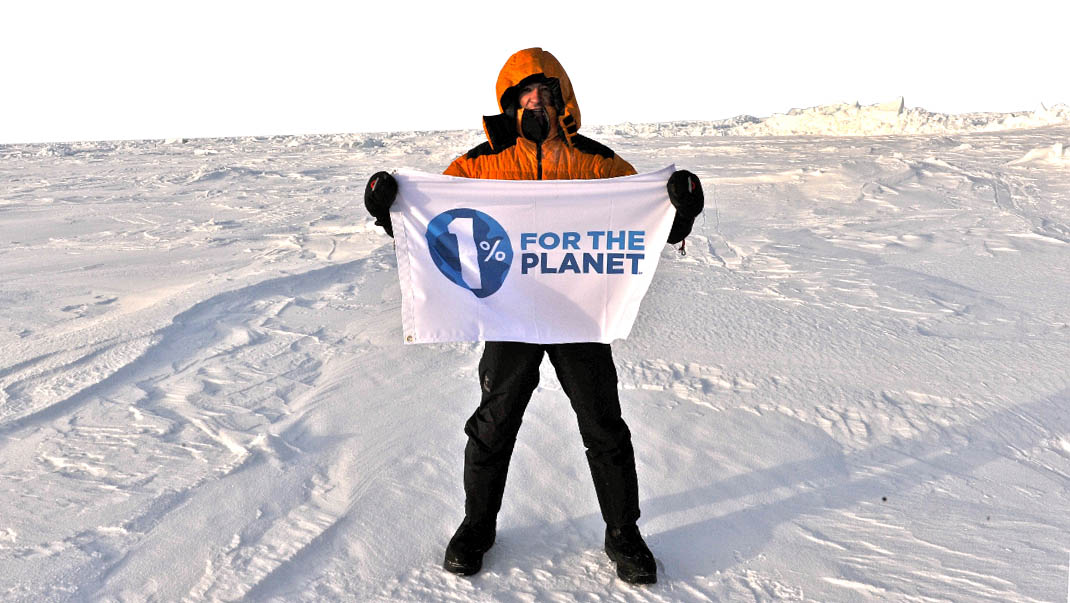
One of Patagonia’s first major activist actions was to begin donating 1% of sales annually since 1985 to grassroots organizations that support the preservation and restoration of the environment. Since then, Patagonia has donated over $100 million, and Yvon Chouinard has expanded the 1% mission into a non-profit corporation called 1% for the Planet that encourages businesses of all sizes to join the movement to protect the planet, bringing in over $250 million since 2002. Patagonia’s donations are spread through a vast network of hand-picked grassroots movements that they are certain are making positive change and otherwise might not be able to remain funded. By making sure that every group they support is focused on the same vision that they are, they are making sure that they are spreading their impact as widely and as effectively as possible.
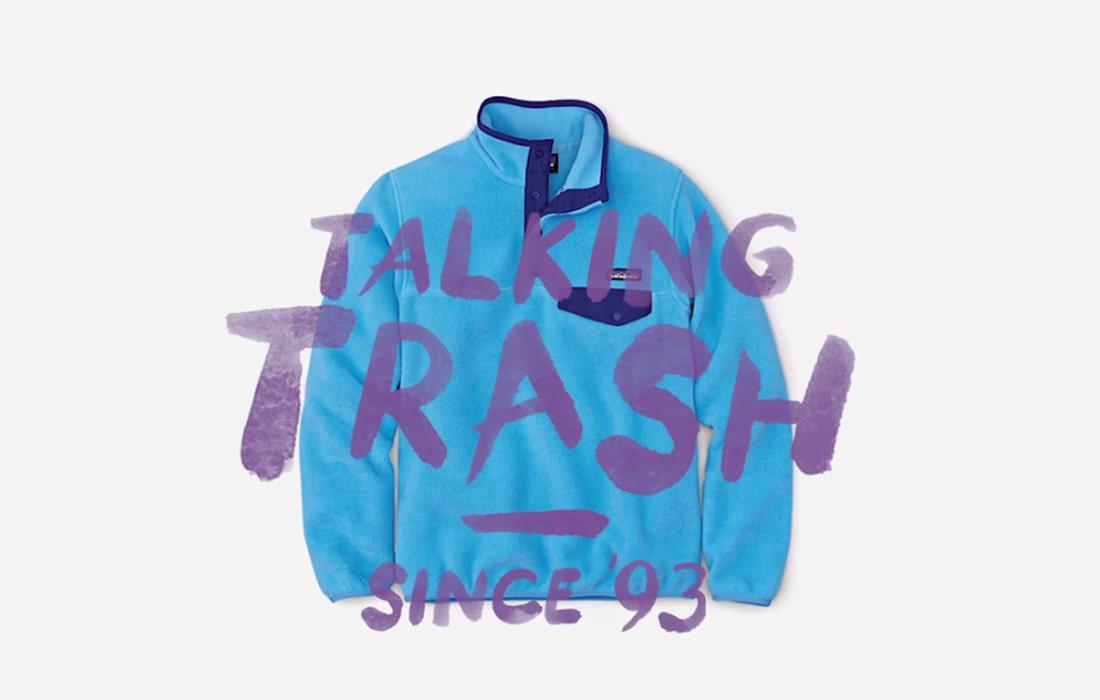
Patagonia’s key values are also centered on their entrepreneurial activism, stating that they want to “build the best product, cause no unnecessary harm, use business to protect nature, and not be bound by convention”. They believe that one of the best ways to reduce waste and harm is by creating high-quality products that do not need to be replaced frequently. That’s why they put so much funding into developing the best technology and testing to ensure their designs are nature-proof. In addition, almost 70% of their products are made from recycled materials, and this number hopes to climb to 100% by 2025 when Patagonia aims to be completely carbon neutral.
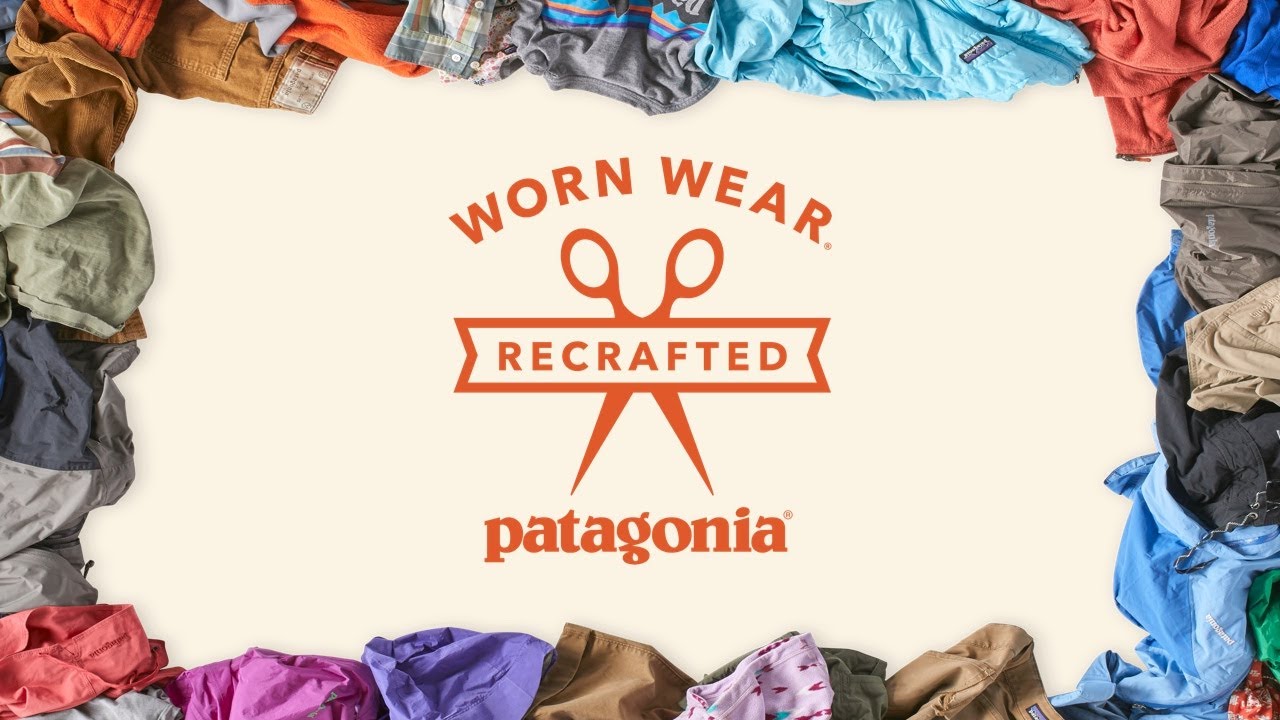
These recycled materials are sourced from plastic products like bottles that would usually end up in the landfill, but Patagonia also recycles and reuses its own products through its Worn Wear program. If any Patagonia products are sent in for repairs and cannot be fixed, or customers trade-in or donate their old products, the Patagonia Worn Wear workshop in California will receive these items and cut them up so they can create new products to sell with the same standard of quality that Patagonia always ensures. These products are also completely unique to each item because they are made from recycled materials being combined together, meaning that every customer gets something with a story behind it.
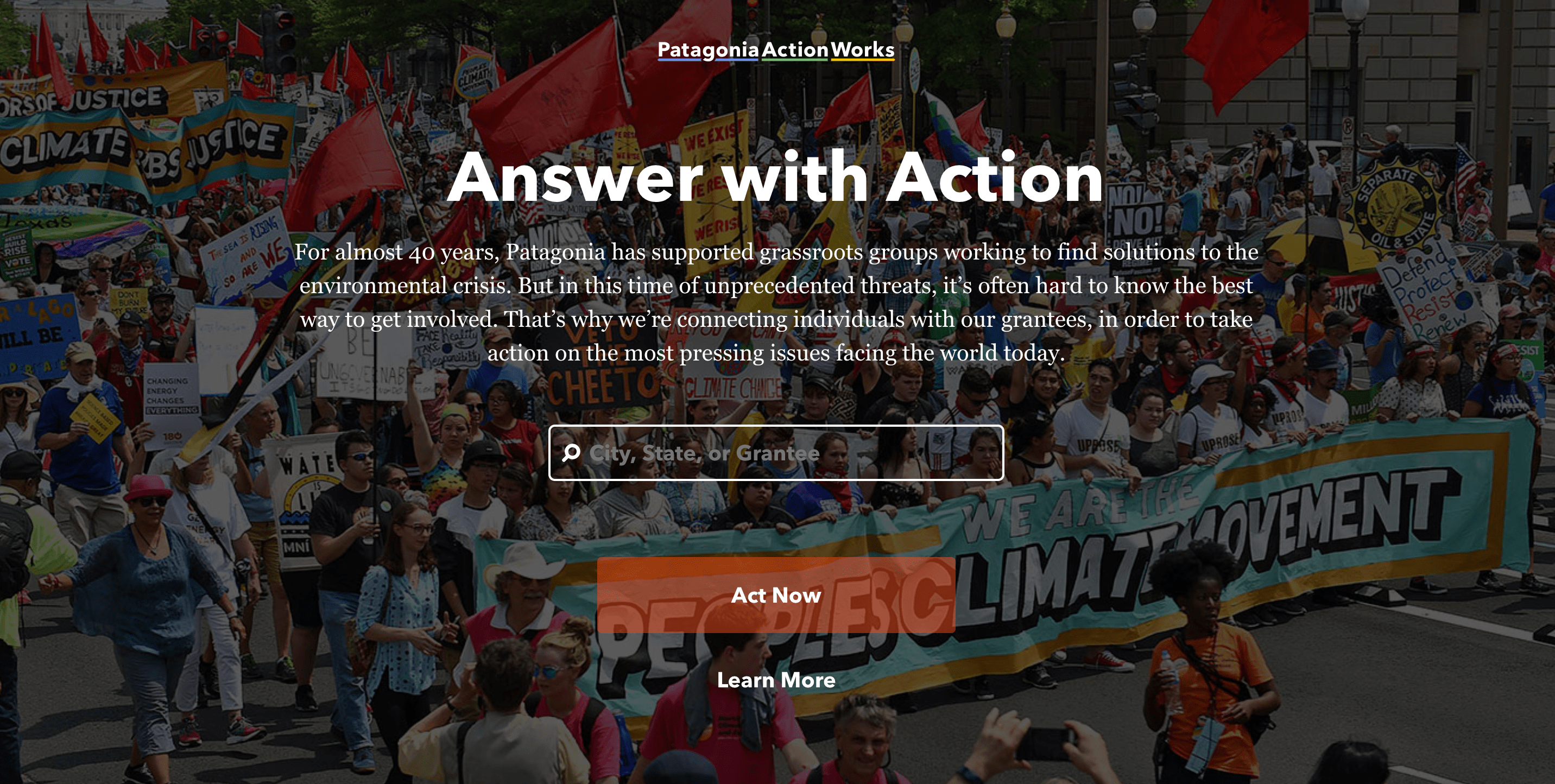
One of the most important ways that Patagonia helps protect the environment is by using their voice to spread the message against climate change. As their platform has grown they have found more and more ways to advocate for our planet through advertisements, their blog, and the Patagonia Action Works program. Patagonia Action Works launched in 2018 as a database allowing individuals to find environmental organizations in their area that they can connect with to volunteer, learn more, or donate. These groups are grassroots organizations that Patagonia supports because they know that they have a commitment to long-term environmental protection, so you can be sure that you are getting involved in something that has the power to make real change.
Patagonia is setting the bar for how companies can bring together business and activism to support the planet that supports us. “We’re in business to save our home planet. We appreciate that all life on earth is under threat of extinction. We aim to use the resources we have – our business, our investments, our voice, and our imaginations – to do something about it”.
March 15 Coronavirus Update: As of Friday, March 13, Patagonia has closed all retail locations, offices, and other operations, along with their online shopping website in order to reduce the risk of spreading the COVID-19 Coronavirus. This bold move comes along with the closure of many other brands this weekend, including Apple, Lululemon, Urban Outfitters, Nike, and many more. Patagonia’s CEO and President, Rose Marcario, posted a message of hope and perseverance on Patagonia’s website, stating that “It’s everyone’s responsibility to help stop the spread of this virus.” and “Over the years, as our Patagonia community has been faced with challenges, I have always been inspired by how we emerge stronger and with an even deeper sense of purpose. We will persevere through this challenge, too”. Patagonia employees who are able to will work from the safety of their home, and all employees will receive full pay throughout this period. An update on the situation will be posted on March 27, 2020.
The Shining by Stephen King!